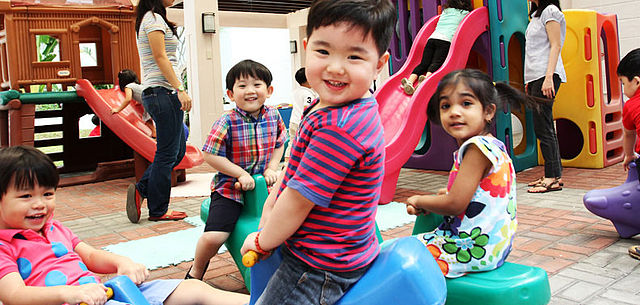58 Preschool
Dinesh Ramoo

The first recommendation for a national childcare program in Canada was made in 1970 by the Royal Commission on the Status of Women. In the past twenty years, several intergovernmental agreements focused on children were initiated, including: the First Ministers Early Childhood Development Initiative (2001); the 2003 and the 2017 Multilateral Early Learning and Child Care (ELCC) Framework Agreements; and the 2017 Indigenous Early Learning and Child Care Framework. By 2021, all provinces and territories are either implementing, piloting, or developing early learning frameworks. Canada’s provinces and territories also recognize the role of Elders in preserving Indigenous knowledge and maintaining the oral transmission of knowledge.
Media Attributions
- Figure 4.16: Children in class © Iancarg is licensed under a CC BY-SA (Attribution ShareAlike) license

